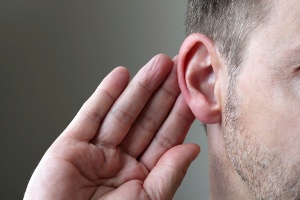 A University of Canterbury (New Zealand) study hopes to produce results which may help people with hearing loss, according to a recent press release from the school.
A University of Canterbury (New Zealand) study hopes to produce results which may help people with hearing loss, according to a recent press release from the school.
Associate Professor Megan McAuliffe says hearing loss affects 10 to 15 percent of young adults and more than 30 percent of older adults.
Elucidating how characteristics of different listeners affect their speech processing may lead to the development of targeted signal processing techniques and rehabilitation strategies, so improving quality of life for tens of thousands of New Zealanders and potentially hundreds of millions worldwide.
“As we age, hearing changes mean that some people begin to experience difficulty understanding and following conversations, particularly in noisy environments like cafes and family gatherings,” says Dr McAuliffe, who leads language and ageing research at the University of Canterbury’s New Zealand Institute of Language, Brain and Behaviour.
“Research has shown it’s not simply hearing driving the issue. Memory and linguistic or word knowledge also play a role. For some people, we think that their knowledge of language gained through many years of speaking and listening may assist them to compensate as they age.
“Our Marsden funded project investigates this hypothesis and looks at how people's hearing, memory and linguistic or word knowledge interact in the process of speech comprehension in older New Zealanders.
“Already about 30 older people and 100 younger people have participated. But we’re looking for a further 100 New Zealanders aged 60 years and over. To participate, people must be relatively healthy, speak with a Kiwi accent and not wear hearing aids.
“They must be able to drive to the University of Canterbury and complete two sessions of about one to one and a half hours each. This involves having your hearing tested, doing assessments of language and memory ability and a speech comprehension experiment. People are asked to listen to speech that we’ve distorted so it’s hard to understand and then they say what they think they heard.
“From this speech comprehension experiment, and results of the other assessments, we will gain important information about how people process speech in difficult listening situations and, importantly, how that’s influenced by age, hearing, memory and linguistic knowledge.
“This is a major three-year study and we are hoping to ramp up our efforts this year. At the end of 2011, Statistics New Zealand indicated 13 percent of the population was older than 65 and predicted that, in the next 20 years, the figure would increase to more than 20 percent,” Associate Professor McAuliffe says.
Source: University of Canterbury





